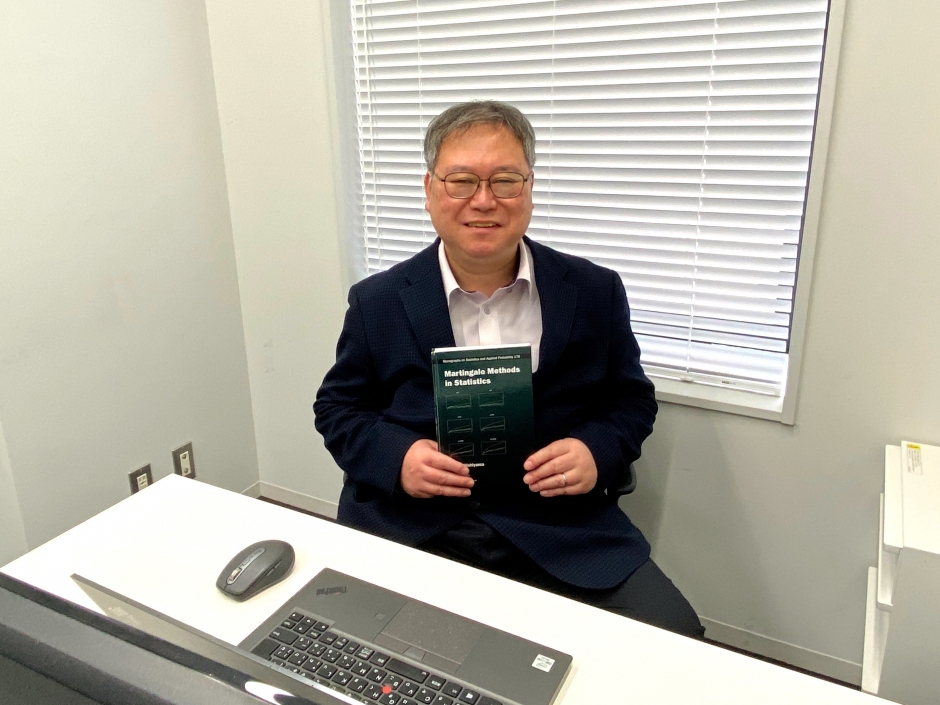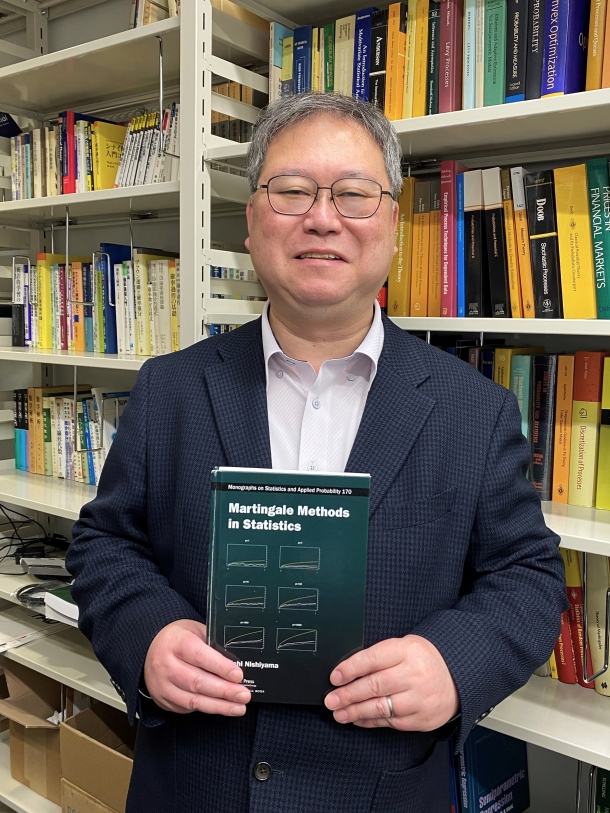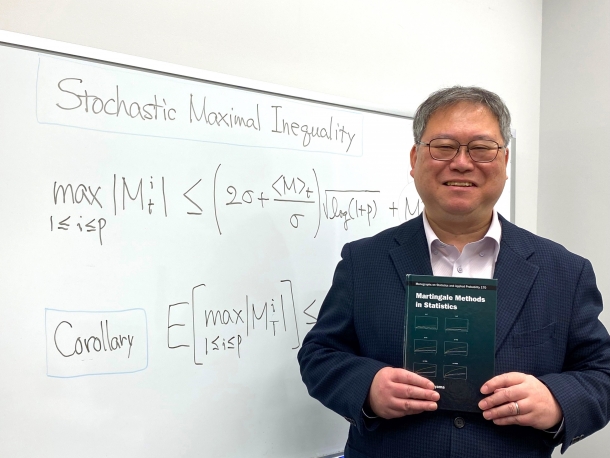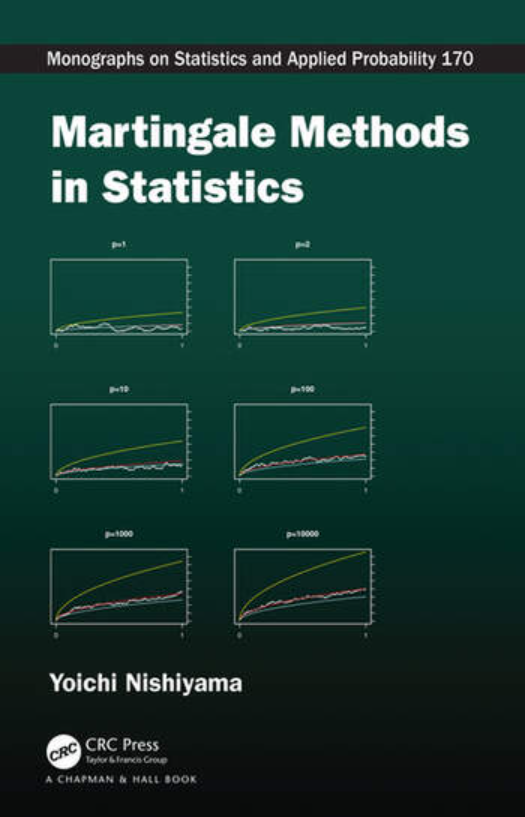- News
- 【Book Introduction】Professor Yoichi Nishiyama has published a book on the martingale theory
【Book Introduction】Professor Yoichi Nishiyama has published a book on the martingale theory

- Posted
- Thu, 25 Jan 2024
 SILS professor Dr. Yoichi Nishiyama has published Martingale Methods in Statistics (Chapman & Hall CRC 2022).
SILS professor Dr. Yoichi Nishiyama has published Martingale Methods in Statistics (Chapman & Hall CRC 2022).
The martingale theory is known as a powerful tool for researchers in statistics to analyze both financial data based on the theory of stochastic differential equations which was created by Kiyosi Ito in 1944, as well as life-time data based on the counting process approach which was initiated by the pioneering work of Odd O. Aalen in 1975. Dr. Nishiyama published Martingale Methods in Statistics which would be helpful for readers including those who hope to build up mathematical bases to deal with high-frequency data in mathematical finance and those who hope to learn the theoretical background for Cox’s regression model in survival analysis.
Martingale Methods in Statistics was written with Dr. Nishiyama’s strong desire to present what is not available in other textbooks. While Dr. Nishiyama chooses to omit the well-known proofs of some of the fundamental theorems in martingale theory by making clear citations, instead does his best to describe some intuitive interpretations or concrete usage of such theorems. On the other hand, the exposition of relatively new theorems in asymptotic statistics is presented in a completely self-contained way. Some simple, easy-to-understand proofs of martingale central limit theorems are included. Some new inequalities for maxima of finitely many martingales are presented in the Appendix. Readers will find many tips for solving concrete problems in modern statistics of stochastic processes as well as in more fundamental models such as i.i.d. and Markov chain models.
Click here to purchase the book.
- Tags
- General Publications Works&Awards ジェネラル 出版 業績


